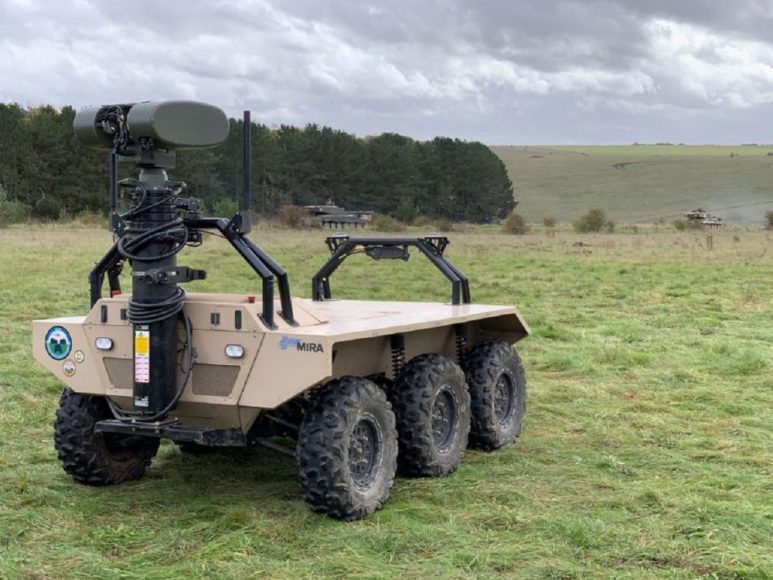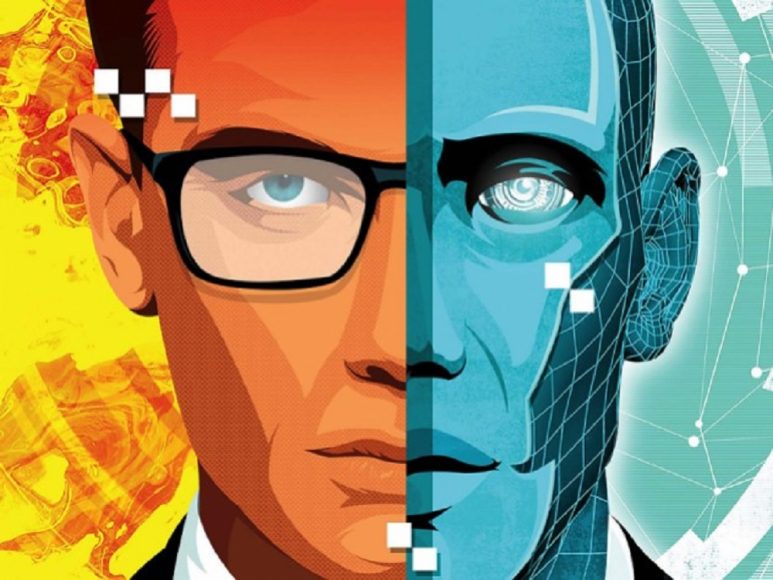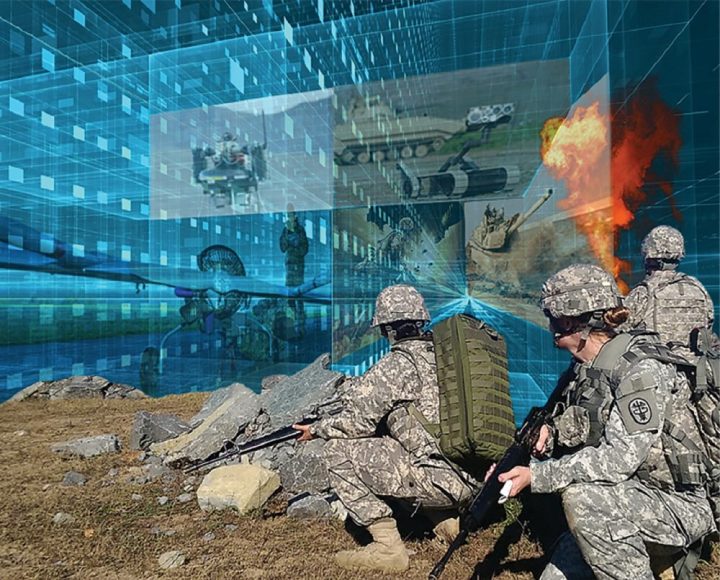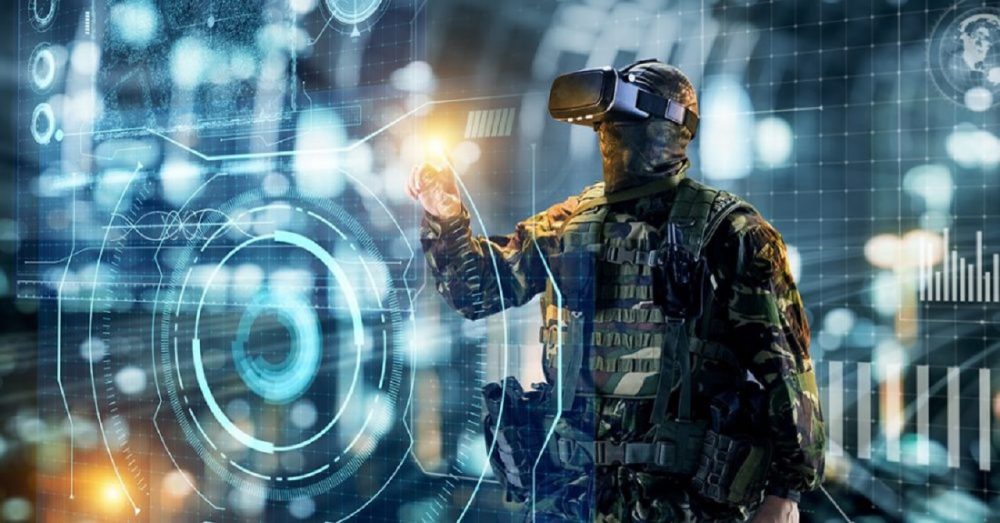The Rise of Autonomous Warfare in Military Technology
Implications and Ethical Considerations
Military technology is rapidly advancing, and with it comes the rise of autonomous warfare – a development that carries profound implications and ethical considerations. In this article, we delve into the multifaceted landscape of autonomous warfare, exploring the impact of this cutting-edge technology on the battlefield.
As the integration of artificial intelligence and autonomous systems becomes increasingly prevalent, it is crucial to examine the advantages, risks, and ethical dimensions that accompany this paradigm shift in military technology.
By addressing these complex issues, we aim to foster a deeper understanding of the challenges and responsibilities that arise with the rise of autonomous warfare in the realm of military technology.
The Evolution of Warfare:
Military technology has undergone a remarkable evolution throughout history, fundamentally reshaping the nature of warfare. From ancient times to the present day, advancements in military technology have played a crucial role in shaping the outcomes of conflicts. The integration of autonomous systems marks a significant milestone in this ongoing evolution, revolutionizing the way wars are fought.
Additionally, the introduction of autonomous systems in military technology has ushered in a new era of warfare. These systems operate with a high degree of autonomy, reducing the need for direct human intervention in combat scenarios. Advanced algorithms and machine learning enable real-time decision-making, greatly enhancing military capabilities through data analysis.
Furthermore, autonomous technology has extended its reach to naval warfare. Unmanned surface vessels and underwater drones are being deployed for various purposes, including mine detection and clearing, intelligence gathering, and even offensive operations. These advancements enhance the capabilities of naval forces and enable them to operate with greater efficiency and effectiveness.
Unmanned aerial vehicles (UAVs) have become a cornerstone of military operations, providing a range of capabilities such as surveillance, reconnaissance, and precision strikes. Autonomous ships equipped with advanced sensors and navigation systems offer enhanced maritime surveillance and defense capabilities. Underwater drones, capable of operating autonomously, gather valuable intelligence and contribute to the underwater domain awareness of naval forces.
However, with the rise of autonomous warfare, ethical considerations come to the forefront. As the level of automation increases, the decision-making power shifts from human operators to algorithms and artificial intelligence. This raises questions about accountability, the potential for unintended consequences, and the ethical implications of delegating life-and-death decisions to machines.
Autonomous Warfare: A Game Changer:
Autonomous warfare represents a paradigm shift in warfare technology, introducing a new era of combat capabilities and tactics. With the integration of autonomous systems, the face of warfare is being transformed, offering unprecedented advantages and challenges.
Firstly, autonomous warfare enhances military precision and accuracy to an extraordinary degree. Unmanned aerial vehicles (UAVs) equipped with advanced sensors and target recognition systems can identify and engage enemy targets with unparalleled precision. Ground-based autonomous systems, such as unmanned ground vehicles (UGVs), assist in logistics, surveillance, and even direct combat, reducing the risks faced by human soldiers.
Additionally, the utilization of autonomous systems improves situational awareness on the battlefield. Through real-time data gathering and analysis, autonomous platforms provide military commanders with critical information for decision-making. This enhanced situational awareness enables rapid and effective responses to dynamic and complex combat situations.
Moreover, autonomous warfare significantly enhances operational efficiency. These systems can operate continuously without fatigue, allowing for round-the-clock surveillance, reconnaissance, and engagement capabilities. Less human intervention, more automation for faster decision-making and response times, enhancing military operational effectiveness.
However, the rise of autonomous warfare also raises ethical concerns and risks. The reduced reliance on human judgment and decision-making processes can result in unintended consequences. Questions of accountability and the potential for errors in autonomous systems underscore the importance of establishing robust ethical guidelines and legal frameworks to govern their use in armed conflicts.
Ethical Concerns and Risks:
The integration of autonomous systems in military technology raises significant ethical concerns and risks that must be carefully addressed. While these advancements offer undeniable advantages, they also present challenges that demand critical examination.
Firstly, one major ethical concern revolves around the diminishing role of human judgment and decision-making in the engagement process. As autonomous systems rely on algorithms and artificial intelligence, questions arise about accountability and responsibility. The lack of human intervention can lead to unintended consequences and errors in the decision-making process.
Additionally, the use of autonomous systems in military operations raises moral implications and concerns about dehumanization. By delegating critical tasks and decisions to machines, there is a risk of distancing humans from the consequences of warfare. This detachment can impact the psychological well-being of military personnel and society as a whole, potentially numbing the sense of responsibility and empathy traditionally associated with armed conflicts.
Moreover, the rapid advancement of military technology brings concerns about the potential misuse or abuse of autonomous systems. Malicious actors could exploit vulnerabilities in autonomous technology for destructive purposes, such as targeting civilian populations or carrying out cyber-attacks. This highlights the importance of stringent safeguards, secure design principles, and comprehensive risk assessments to prevent the misuse of autonomous capabilities.
However, addressing ethical concerns in autonomous warfare requires a comprehensive approach. Striking the right balance between technological innovation and ethical considerations is essential. The development and deployment of autonomous systems should adhere to legal and moral frameworks, ensuring compliance with international humanitarian law, proportionality, and the distinction between combatants and non-combatants.
Humanitarian and Civilian Impact:
The integration of autonomous warfare technology in the military raises significant concerns regarding its humanitarian and civilian impact. While autonomous systems offer advantages in terms of precision and efficiency, they also pose risks that can affect non-combatants and humanitarian efforts.
Firstly, there is a growing concern about the potential for increased civilian casualties. Despite advancements in target recognition and engagement capabilities, there is still a risk of misidentification or errors in autonomous systems. These errors can result in unintended harm to innocent civilians, undermining the principles of distinction and proportionality in armed conflicts.
Additionally, the deployment of autonomous systems may impact humanitarian operations and the provision of aid. The presence of unmanned platforms on the battlefield can complicate efforts assist to affected populations. Humanitarian organizations and aid workers may face challenges in navigating an environment where autonomous systems are operating, potentially impeding their ability to reach and assist those in need.
Moreover, autonomous warfare technology raises questions about moral responsibility and accountability for civilian harm. With the reduced role of human operators in decision-making, questions arise regarding who should be held accountable for any potential violations of humanitarian law or harm caused to civilians. Establishing clear lines of responsibility and accountability becomes crucial to address these concerns.
However, efforts are being made to address these concerns and mitigate the humanitarian and civilian impact of autonomous warfare. International legal frameworks, such as the Geneva Conventions, provide guidelines for the conduct of armed conflicts and the protection of civilians. It is essential to ensure that autonomous systems adhere to these principles and are designed with humanitarian considerations in mind.
International Security and Arms Control:
The emergence of autonomous warfare technology poses unique challenges to international security and arms control efforts. Rapid deployment of advanced systems disrupts security paradigms, requiring measures to maintain stability and prevent unintended escalations.
Firstly, the proliferation of autonomous warfare technology raises concerns about the arms race dynamics among nations. Countries striving for military enhancement can trigger a competitive cycle of autonomous system development and deployment. This can potentially fuel an arms race and increase tensions among states, necessitating effective arms control measures.
Additionally, the unique characteristics of autonomous systems complicate traditional arms control frameworks. These systems can operate with a high degree of autonomy, making it challenging to regulate and monitor their activities. The absence of human control raises compliance and escalation concerns, necessitating effective verification methods for arms control.
Moreover, the global diffusion of autonomous warfare technology presents challenges to maintaining stability and preventing the proliferation of these systems. The transfer of such advanced technology between states or non-state actors can have profound implications for regional and global security. International cooperation and robust arms control are vital in mitigating risks from the uncontrolled spread of autonomous warfare.
However, efforts are being made to address these challenges and promote international security in the era of autonomous warfare. Multilateral dialogue and cooperation among states can foster confidence-building measures, transparency, and information sharing. Establishing global norms and agreements for autonomous systems regulates their development, deployment, and promoting responsible behavior and mitigating unintended consequences.
The Role of Artificial Intelligence (AI):
Artificial Intelligence (AI) plays a pivotal role in the development and operation of autonomous warfare cloud technology, shaping the future of military capabilities. As a key component of autonomous systems, AI enables advanced data analysis, decision-making, and adaptive responses on the battlefield.
Firstly, AI enhances the data processing capabilities of autonomous systems. AI algorithms analyze data in real-time, identifying patterns, and anomalies, and extracting valuable insights from vast information. This enables military forces to make informed decisions based on accurate and timely intelligence, thereby enhancing situational awareness and operational effectiveness.
Additionally, AI empowers autonomous systems with adaptive and learning capabilities. Through machine learning algorithms, these systems can continuously analyze and adapt to changing environments and combat scenarios. They can learn from past experiences and optimize their performance, improving accuracy, and operational efficiency over time.
Moreover, AI enables autonomous systems to autonomously identify and engage targets. Advanced AI algorithms can analyze sensor data, recognize patterns, and make independent decisions regarding target selection and engagement. This reduces the reliance on human operators for real-time decision-making, accelerating response times, and increasing the overall effectiveness of military operations.
However, the role of AI in autonomous warfare also presents challenges. The complexity of AI algorithms and their reliance on large datasets raises concerns about the vulnerabilities and potential for adversarial attacks. Safeguarding AI systems against hacking, tampering, or malicious manipulation becomes critical to ensuring their integrity and reliability on the battlefield.
Policy and Legal Frameworks:
The integration of autonomous warfare technology in military operations necessitates the development of comprehensive policy and legal frameworks. These frameworks play a crucial role in addressing the unique challenges and ethical considerations posed by autonomous systems in armed conflicts.
Firstly, policy frameworks must be established to govern the development, deployment, and use of autonomous warfare technology. These policies should outline guidelines and principles that ensure responsible and ethical conduct. They should address issues such as human oversight, accountability, transparency, and the protection of civilian lives and infrastructure.
Additionally, legal frameworks are essential to regulate and enforce compliance with international humanitarian law (IHL) and other relevant treaties. These frameworks should clarify the legal status and responsibilities associated with autonomous systems in armed conflicts. They should also address liability, accountability, and the legality of using autonomous weapons by IHL principles.
Moreover, international cooperation is crucial in establishing uniform policies and legal frameworks. Given the global nature of armed conflicts, a harmonized approach to regulating autonomous warfare technology is essential. Collaboration among states can facilitate the sharing of best practices, promote consensus on ethical standards, and enable effective enforcement mechanisms.
However, the development and implementation of policy and legal frameworks face challenges. The rapid advancement of military technology often outpaces the development of corresponding regulations. Keeping up with the pace of technological innovation, fostering international consensus, and ensuring effective enforcement mechanisms require ongoing commitment and adaptability.
Public Perception and Debate:
The emergence of autonomous warfare technology has sparked intense public perception and debate regarding its implications and consequences. As the use of defense technology evolves, it is essential to understand and address the concerns, expectations, and ethical considerations of the public.
Firstly, public perception plays a critical role in shaping the discourse surrounding autonomous warfare. The introduction of advanced technologies with autonomous capabilities can evoke both fascination and apprehension among the public. Understanding and addressing public concerns, such as the potential for civilian harm or the erosion of human control, is crucial to fostering transparency and trust.
Additionally, public debate plays a vital role in shaping policies, regulations, and ethical standards related to autonomous warfare. Diverse perspectives and discussions on the implications, risks, and benefits of military technology contribute to informed decision-making and promote democratic accountability. Engaging the public in these debates is crucial to ensure their voices are heard and considered.
Moreover, the public’s understanding and perception of autonomous warfare technology can influence societal acceptance and support. Open and inclusive communication channels, educational initiatives, and efforts to demystify the technology can contribute to informed public discourse and promote a more balanced understanding of the capabilities and limitations of autonomous systems.
However, public perception and debate can also be influenced by misconceptions, biases, and misinformation. The complexity of autonomous warfare technology requires effective communication strategies to bridge the gap between technical concepts and public understanding. Transparent and accessible information, alongside efforts to address misconceptions, can foster a more informed and constructive public discourse.
Conclusion:
In conclusion, the rise of autonomous warfare in military technology brings forth a new era of capabilities, challenges, and ethical considerations. As we witness the evolution of warfare, it is imperative to carefully evaluate the implications of autonomous systems and address the ethical concerns they raise.
From the potential risks of reduced human control to the impact on international security and civilian well-being, a comprehensive approach is needed. Through strong policies, international cooperation, public engagement, and transparency, we shape the ethical future of autonomous warfare.
We encourage you to share your thoughts and feedback in the comments section below and help foster a meaningful discussion on this topic. Together, let us navigate the path forward, embracing the potential of military technology while safeguarding the values and principles that define our humanity.












